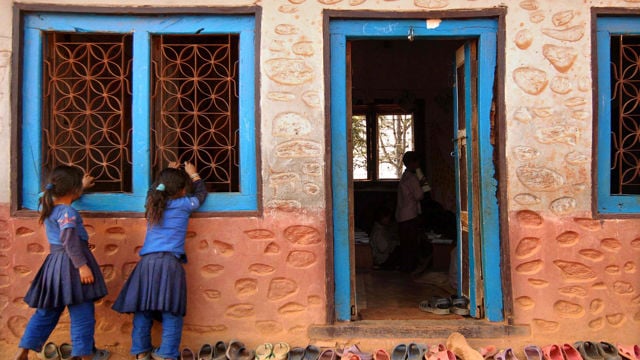
Education and research
Norad works with the entire educational trajectory - from basic education, Technical and Vocational Education and Training (TVET) to higher education, including research. See below for more information about each of the areas. We also have two portfolios on system strengthening: one on basic education and one on higher education and research.
Why
In low-income countries, many children start school but do not finish or do not learn enough, so that they do not acquire basic skills. Sexuality education meets considerable resistance from cultural and political pressure groups who often misinform or claim that such education encourages sexual activity among young people. TVET systems do not have capacity to train the increasing youth population in the global south with quality and relevant skills to get gainful employment, and contribute to increased productivity and sustainable economic development. The higher education and research sector in the global south, especially in sub-Saharan Africa, is struggling to deliver on its social mission, which is to educate a qualified workforce, produce and disseminate knowledge and develop innovative solutions to current and future challenges. The aim of Norwegian development cooperation is to ensure that all children receive quality education and that higher education and research contribute to societal development.
What
Under basic education, Norwegian development cooperation focuses on adapted training by qualified teachers and the use of understandable language. It is important to have clear curricula and assessment criteria. Sexuality education is integrated into curricula syllabus and teacher training to give children and young people the necessary knowledge about health, equality and their own rights. Norad also supports studies and research projects to meet opposition to sexuality education. In crisis and conflict situations, Norad contributes with humanitarian assistance, including mental health and psychosocial interventions. TVET focuses on increasing quality of TVET systems to qualify more young people with demand driven skills to get jobs in relevant economic sectors. Higher education is strengthened through support to universities through Norway's program for capacity development (NORHED), which includes stipends, research grants, improvement of infrastructure, equipment, administration and systems and leadership programs for women. Furthermore, Norad supports national and regional research councils, research institutes and other key players in the African research ecosystem.
Who/Where
The support is aimed at children, young people, students and researchers, with a specific focus on girls/women, people with functional impairments, cultural and ethnic minorities and indigenous groups and those living in crisis and conflict areas. Collaborating partners include major multilateral organizations such as International Labour Organisation (ILO), International Telecommunication Union (ITU), UNESCO, UNICEF, Global Partnership for Education and Education Cannot Wait. Norad also works with civil society organizations and state agencies such as Save the Children, GIZ, the Norwegian Refugee Council and the Norwegian Students’ and Academics’ International Assistance Fund as well as universities, colleges, research institutes, research councils and other key players in the academic ecosystem in the global south. Norwegian development cooperation focuses mainly on sub-Saharan Africa, but also includes other low-income countries. The higher education program has a special focus on countries such as Uganda, Tanzania, Ethiopia, Malawi, South Sudan, Mozambique and Ghana.